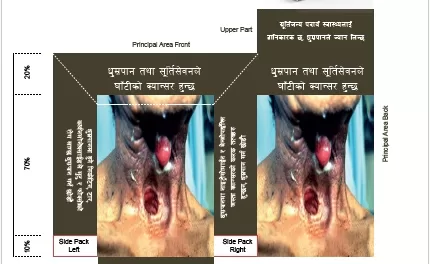An international research team has uncovered groundbreaking findings about how pregnancy and breastfeeding trigger significant changes in mothers’ intestines, with implications for both maternal health and offspring development. The study, led by Josef Penninger and Masahiro Onji at the Medical University of Vienna, reveals that during these life stages, the intestinal structure reorganizes, nearly doubling in surface area to support the heightened nutritional demands of both mother and baby. The research, published in Nature, also identifies the genetic and mechanistic processes behind these dramatic changes, with potential consequences for transgenerational health.
A Surprising Discovery
For decades, scientists have focused on the ways pregnancy and breastfeeding alter organs like the breasts, immune system, and bones. However, the intestinal changes that occur during these periods have remained largely unexplored. This new research highlights that the small intestine undergoes a striking transformation, with the villi—tiny finger-like projections lining the gut—growing larger and increasing the surface area.
The team, which studied genetically modified mice and human intestinal organoids, pinpointed the RANK receptor/RANK ligand (RANK/RANKL) system as the key driver of this expansion. The RANK/RANKL system, already known for its role in bone health, immune tolerance, and mammary gland function, is now shown to regulate the growth of intestinal villi during pregnancy and lactation. When mice were engineered to lack this system, their intestines failed to expand as needed, leading to impaired milk production and stunted growth in their offspring.
Evolutionary Significance
Penninger and Onji’s team suggests that these intestinal adaptations are fundamental to evolution, ensuring that mothers can provide adequate nourishment to their growing babies. The study shows that the RANK/RANKL system is essential not only for the immediate health of the mother and child but also for the long-term metabolic health of the offspring. Researchers observed that when the system was disrupted, the quality of the mother’s milk was compromised, resulting in babies that weighed less and had long-term metabolic issues.
“This research provides the first molecular and structural explanation for how the intestine adapts to the enhanced nutritional demands of pregnancy and breastfeeding,” said Penninger. “It helps us understand a fundamental biological process that likely occurs in all mammals during reproduction.”
The Role of Hormones
The researchers found that sex and pregnancy hormones control the RANK/RANKL system, which in turn triggers a survival signal for intestinal stem cells, prompting them to enlarge. This process results in the near doubling of the intestine’s surface area, enhancing its capacity to absorb vital nutrients such as sugar, protein, and fat. These changes also affect the architectural design of the villi, slowing down food flow to maximize nutrient absorption.
Penninger described the discovery as “an amazing new way that mothers’ bodies change to keep babies healthy,” adding that it may open new avenues for understanding intestinal diseases, such as cancer and regeneration. The team’s work suggests that the mechanisms observed in pregnant and breastfeeding mothers could potentially be harnessed to develop treatments for intestinal cancers or improve gut health.
Collaborative Research Effort
This study represents a close collaboration between researchers from institutions across the globe, including the Medical University of Vienna, the Institute of Molecular Biotechnology in Vienna, the University of British Columbia in Canada, the Helmholtz Centre for Infection Research in Germany, and the University of Tokyo. Researchers from the University of Cambridge and the Hubrecht Institute in the Netherlands also contributed to the groundbreaking work.
By identifying the molecular basis behind the remarkable changes in mothers’ intestines during pregnancy and lactation, this research marks a major step forward in our understanding of reproduction, evolution, and health. It opens up exciting possibilities for developing new therapies for intestinal diseases and improving maternal and infant care.
Source: Medical University of Vienna
Journal Reference: Masahiro Onji, et al. (2024). RANK drives structured intestinal epithelial expansion during pregnancy. Nature. doi.org/10.1038/s41586-024-08284-1.












